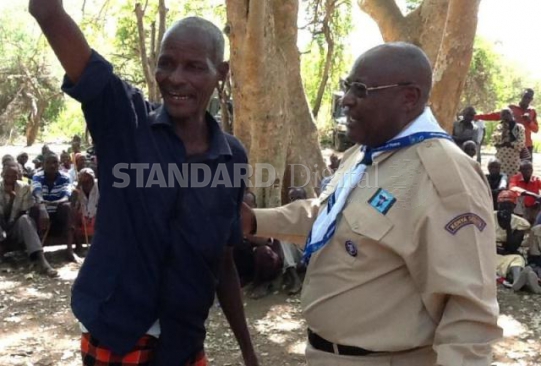×
The Standard e-Paper
Join Thousands of Readers

They say when two bulls fight the grass suffers most. This, however, is not the case in Ramacha area of Arabal division, Baringo South constituency.
A stand-off between two warring communities, the Pokot and Tugen, has left the grass unattended for several seasons now. None of the two sides is ready to give in. The grass in the hilly area continues to grow taller and taller as cattle from both sides of the divide continue to starve for pasture.